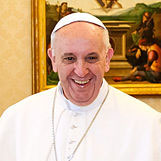Tuesday’s general election struck a blow for the progressive movement in America. President Obama was re-elected, the Democrats increased their Senate majority, same-sex marriage was endorsed in four states and recreational cannabis was legalised in two.
But there was one (so-called) progressive measure which was defeated. Massachusetts, home to the Kennedys and a bastion of progressive politics, rejected legalised euthanasia 51%-49%.
That’s a narrow margin, but the No campaign calls it a resounding victory. In the space of six weeks, it seems the No campaign swayed 16% of voters. A mid-September poll found “Nearly two-thirds, or 64 percent, of voters support the proposed Prescribing Medication to End Life law.”
The tone of the No campaign was telling. Here’s one of their ads:
This ad is straight out of the playbook of Canada’s highly-successful Euthanasia Prevention Coalition. One of their strategists toured Australia last year, briefing local pro-life activists on best practice. Advice included:
- Alerting voters to the onerous obligations which euthanasia places on professional care-givers. Freedom is one of the most cherished values of the modern electorate. Insofar as euthanasia is seen as an expression of patients’ freedom, it wins support. But a lot of voters will think again if euthanasia is also shown to be an imposition on doctors and nurses.
- Stitching together a broad coalition — including religious groups, medical professionals, and disability activists — which advances purely non-religious arguments. Catholics constitute 44 per cent of the population of Massachusetts, but even though the Church supported the No campaign, it stayed in the background. This prevented the Yes campaign from framing the No campaign as theocratic.
- Burnishing the pro-life cause’s progressive credentials. On social issues like abortion and euthanasia, the progressive vote is up for grabs because these issues transcend the normal ideological divide. In the final week of campaigning, the No campaign recruited the widow of Ted Kennedy to their cause. Victoria Reggie Kennedy declared: “for every complex problem, there’s a simple easy answer. And it’s wrong.”
The most pro-choice Congressman in American history was just re-elected to a second term in the White House, but the pro-choice cause is by no means ascendent in the electorate. Voters under 30 voted overwhelmingly in favour of Obama’s progressive agenda on Tuesday’s election, but in contrast to their parent’s generation, the majority of younger voters are also pro-life. Pro-lifers in Australia can take heart and hope for similar fruit.





At least from a distance, I’m not sure they pro-life movement inthe US is learning the lessons it needs to. It has allowed itself to become identified as a front for the hard right of the Republican party and their pop-darwinian view of economics, society snd international relations. Apart from the fact that that isn’t consistent with Catholic teaching (see any social encyclical from Rerum Novarum onwards, including Caritas in Veritate), that approach is bound to be an automatic turn-off to anyone who isn’t an Ayn Rand groupie.
Has anyone pointed out to Paul Ryan, by the way, that Rand was a hard-line sexual as well as economic libertarian? Awful as she was, at least she was consistent.